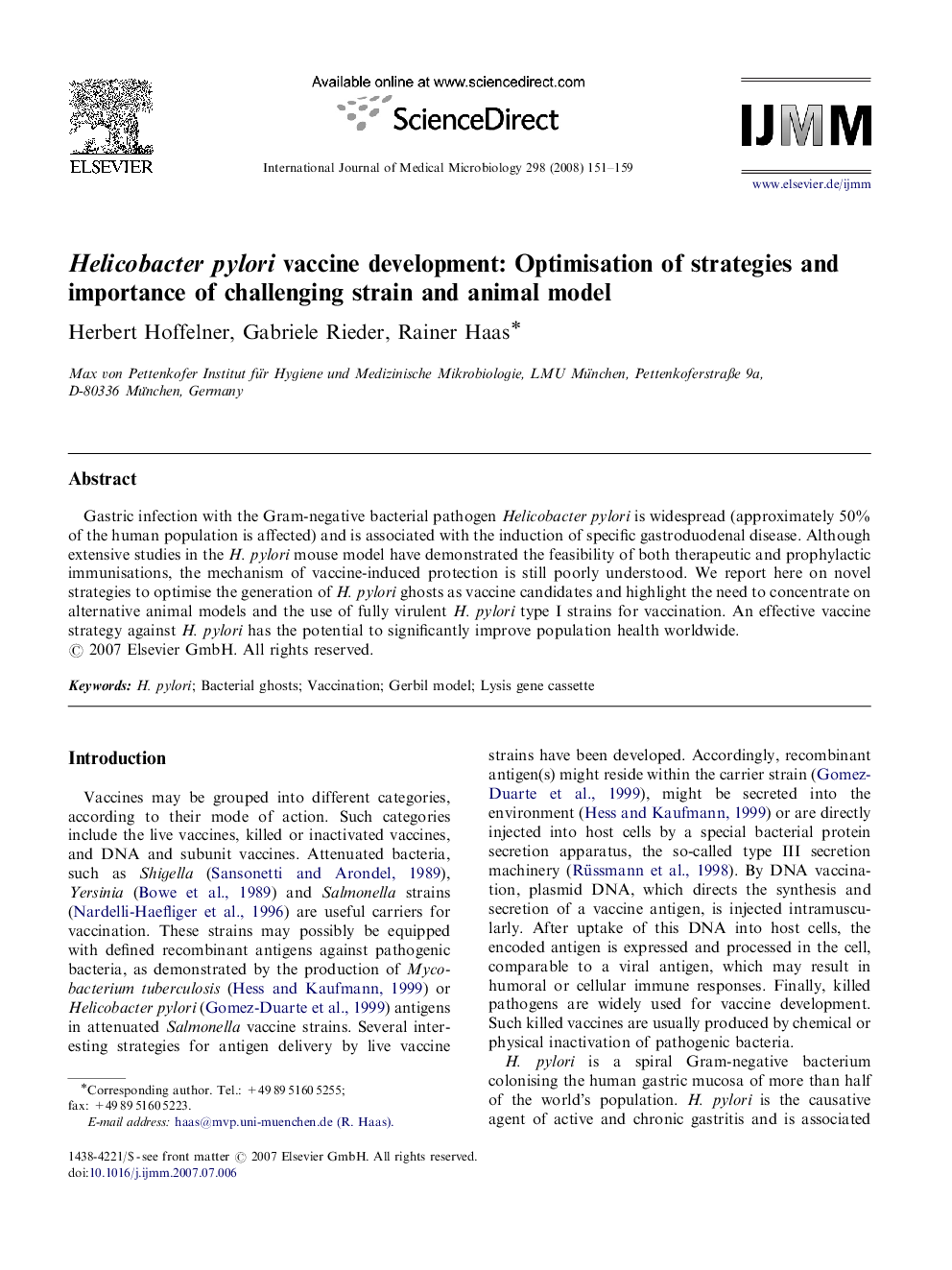| Article ID | Journal | Published Year | Pages | File Type |
|---|---|---|---|---|
| 2054276 | International Journal of Medical Microbiology | 2008 | 9 Pages |
Gastric infection with the Gram-negative bacterial pathogen Helicobacter pylori is widespread (approximately 50% of the human population is affected) and is associated with the induction of specific gastroduodenal disease. Although extensive studies in the H. pylori mouse model have demonstrated the feasibility of both therapeutic and prophylactic immunisations, the mechanism of vaccine-induced protection is still poorly understood. We report here on novel strategies to optimise the generation of H. pylori ghosts as vaccine candidates and highlight the need to concentrate on alternative animal models and the use of fully virulent H. pylori type I strains for vaccination. An effective vaccine strategy against H. pylori has the potential to significantly improve population health worldwide.
